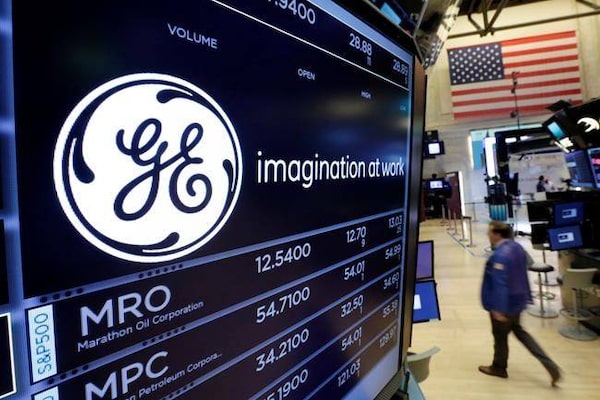Investing in turnaround plays can be sweet, but it is seldom a slam dunk.
The road for a stock’s recovery can be bumpy with potential value traps. A company’s ability to regain its lustre can depend on new managers, a new board of directors and/or a new problem-solving strategy. Takeovers or acquisitions can become catalysts, too.
We asked three value-oriented portfolio managers for their turnaround bets.
David Taylor, president of Taylor Asset Management Inc., Toronto
His fund: Taylor Partners Fund
The pick: Labrador Iron Ore Royalty Corp. (LIF-TSX)
52-week range: $20.25 to $28.98 a share
Labrador Iron Ore Royalty Income Fund derives its income from mining.
Rebounding commodity prices have lifted shares of Labrador Iron Ore from below $10 a share in 2016, but more upside is likely coming, says Mr. Taylor. The Toronto-based company, whose stock peaked at $40 a share in 2011, receives a dividend from a 15-per-cent stake in Iron Ore Co. of Canada (IOC) plus a 7-per-cent royalty on iron-ore products that IOC sells. IOC will benefit from a significant premium it receives for its higher-grade ore favoured by China’s steel mills to reduce pollution, and rising prices for pellets due to a supply shortage, he says. That should provide investors who own Labrador stock with an annual dividend of $4 to $4.50 a share, he estimates. But a possible catalyst for the stock could come soon from Rio Tinto PLC, which will decide whether to sell its 59-per-cent stake in IOC or take it public, he says. Labrador could also be a potential takeover candidate by someone interested in IOC, he says.
The pick: Element Fleet Management Corp. (EFN-TSX)
52-week range: $3.21 to $11.03 a share
Shares of North America’s largest commercial fleet leasing company have risen recently on hopes that a proposed turnaround strategy can succeed, says Mr. Taylor. Toronto-based Element’s stock traded at more than $14 a share last year before diving to around $3 this year. Element faces a myriad of problems, including trouble integrating acquisitions and ownership in a troubled truck-leasing joint venture. Jay Forbes, a veteran businessman who became its chief executive officer last summer, and the new board of directors are doing the right thing, including cutting the dividend and winding down the joint venture, he says. Element is also a potential takeover candidate, adds Mr. Taylor, who bought its shares for an average of $6.90 each. The stock, which trades below book value of about $10 a share, could hit $11 in 18 months, he says.
Tim McElvaine, president of McElvaine Investment Management Ltd., Victoria
His fund: McElvaine Investment Trust
The pick: General Electric Co. (GE-NYSE)
52-week range: US$11.21 to US$23.84 a share

General Electric has been beaten up in the markets.The Associated Press
Bad acquisitions, misses on earnings expectations and dividend cuts have taken their toll on General Electric, whose shares tumbled to US$11 recently from US$55 in 2000, says Mr. McElvaine. The Boston-based conglomerate is active in industries including aviation, power, energy and financial services. The recent naming of former Danaher Corp. chief executive officer Lawrence Culp as its new CEO is a welcome move, he adds. “An outsider and an experienced CEO is also a confidence builder for rating agencies.” In shrinking its GE Capital unit, Mr. Culp just sold US$1-billion in energy investments to a private equity firm. GE has assets that it can sell to prop up its balance sheet, but a big risk is whether it will need to pump more money into struggling GE Capital, which has been a “bit of black hole,” he says.
The pick: Greenlight Capital Re Ltd. (GLRE-Nasdaq)
52-week range: US$11.25 to US$23 a share
The stock of this property-and-casualty reinsurer has suffered since hitting US$34 a share in 2014, largely because of its poorly performing investment portfolio, says Mr. McElvaine. The Cayman Islands-based firm was founded by U.S. hedge fund manager David Einhorn, president of Greenlight Capital Inc. The reinsurer’s portfolio, which invests its float (money collected in premiums but not paid out in claims) using the same strategy as his value-oriented fund, has performed badly in recent years, he says. It has shorted expensive technology stocks, such as Amazon.com and Tesla Inc., that have done well. The appeal of this reinsurer’s stock is that it trades at a discount to book value with potential upside coming from improving insurance operations and better performance from Mr. Einhorn’s strategy, he says. The reinsurer’s only debt is a convertible debenture, he adds.
James Telfser, portfolio manager, Aventine Asset Management Inc., Toronto
His fund: Aventine Canadian Equity Fund
The pick: Winpak Ltd. (WPK-TSX)
52-week range: $42.50 to $55.97 a share

Winnipeg-based Winpak Ltd. makes plastic packaging.
The plastic packaging maker’s stock has fallen from last year’s high of $61 a share as profit margins were hurt by higher oil prices and Hurricane Harvey shutting down refineries temporarily, says Mr. Telfser. Winpak, based in Winnipeg, relies on oil-based resin as a raw material for its packaging. Because the company has succeeded in passing some of the rising costs to customers, it could have positive earnings surprises continuing into 2019, he suggests. Key to its turnaround is its “good balance sheet” with no debt and $319-million in cash, or $6.50 a share, that could be used for an acquisition or a special dividend to shareholders, he adds. Winpak has faced more competition from larger rivals targeting its higher-margin business, such as the packaging of perishable foods, but the impact has not been massive, he says. “It is a well-run, conservative company.”
The pick: Hardwoods Distribution Inc. (HDI-TSX)
52-week range: $14.25 to $19.82 a share
Shares of this architectural-building products distributor are off from last year’s high of $22 a share amid profit-margin pressure coming from its pricier imports and concerns over a U.S.-China trade war and a U.S. housing slowdown, says Mr. Telfser. The Langley, B.C.-based company, which has annual sales of about $1-billion, gets 85 per cent of its revenue from the U.S. market. Any company importing goods from China into the United States faces some uncertainty about potential tariffs, he notes. The overhang on the stock, however, creates “an attractive opportunity,” he adds. Hardwoods, which is run by a conservative management team, has a solid balance sheet, generates lots of cash, and increased its dividend in the last quarter, he says. With 39 acquisitions in more than seven years, another one could also be a potential catalyst for its stock, he adds.